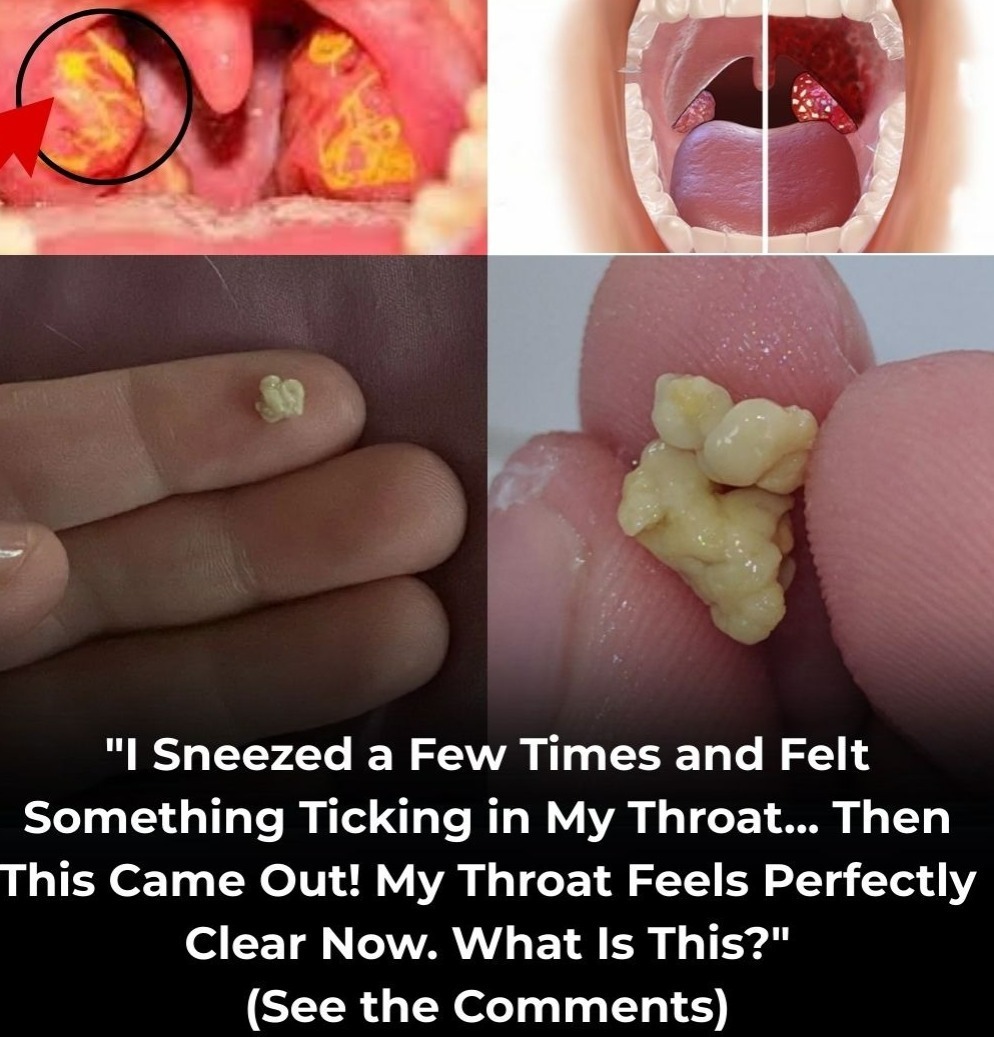🧼 How to Get Rid of Tonsil Stones
Here are safe and effective ways to remove tonsil stones at home or with professional help:
-
Gargle with Salt Water
Helps loosen stones and reduce inflammation. Gargle multiple times a day, especially after eating. -
Use a Cotton Swab or Toothbrush
Gently press around the stone to dislodge it — be cautious not to injure the tonsils. -
Irrigate with a Water Flosser
A low-pressure oral irrigator (like a Waterpik) can flush out debris from tonsil crevices. -
Stay Hydrated
Drinking water keeps your mouth moist and helps reduce bacteria. -
Practice Good Oral Hygiene
Brush your teeth and tongue, and use an alcohol-free mouthwash to reduce buildup. -
Visit an ENT Specialist
For persistent cases, medical professionals can remove stones or recommend treatments like laser resurfacing or tonsillectomy.
🩺 When to See a Doctor
See a healthcare provider if you experience:
-
Frequent tonsil stones
-
Severe pain or difficulty swallowing
-
High fever or swollen tonsils
-
Signs of infection (redness, pus, or ear pain)
-
Persistent bad breath despite good hygiene
An ENT can assess whether more advanced treatment is needed.
🛡️ How to Prevent Tonsil Stones
Preventive strategies include:
-
Brushing and flossing daily
-
Using alcohol-free mouthwash
-
Staying well-hydrated
-
Reducing dairy intake, especially before bed
-
Avoiding smoking
-
Considering a tonsillectomy for chronic cases
In some cases, procedures like coblation or laser cryptolysis can reduce the size of tonsil crypts and prevent stone formation.
🧪 Tonsil Stones vs. Other Conditions
It’s easy to confuse tonsil stones with other conditions. Here’s a comparison:
| Condition | Description | Key Differences |
|---|---|---|
| Tonsil Stones | White/yellow lumps on tonsils | Usually painless; may cause bad breath |
| Strep Throat | Bacterial infection | Sudden sore throat, fever; no visible stones |
| Strep Carrier | No symptoms but positive strep test | No pain, but strep bacteria present |
| Oral Thrush | Fungal infection (often in mouth) | White patches that wipe off; usually on tongue or cheeks |
| Tonsillitis | Inflammation of the tonsils | Red, swollen tonsils; may or may not include pus |
When unsure, always consult a healthcare provider for a proper diagnosis.
🧾 Final Thoughts
White or yellow balls on the tonsils are usually tonsil stones — harmless buildups of debris, bacteria, and mucus that harden in the tonsil crypts. While they may be uncomfortable or embarrassing, they can often be managed through proper hygiene, hydration, and lifestyle changes. For recurring or painful cases, medical treatments are available.

